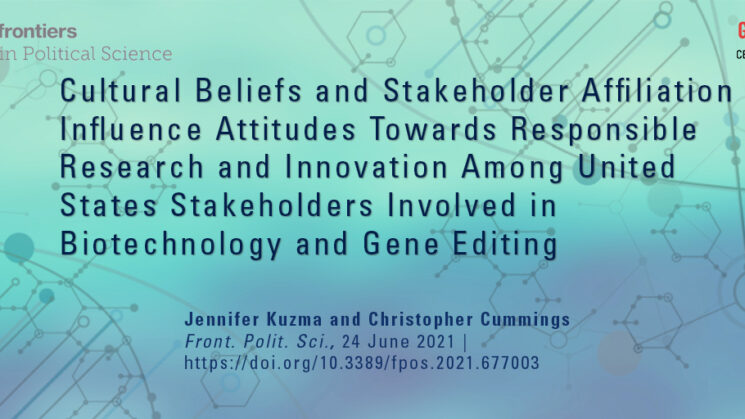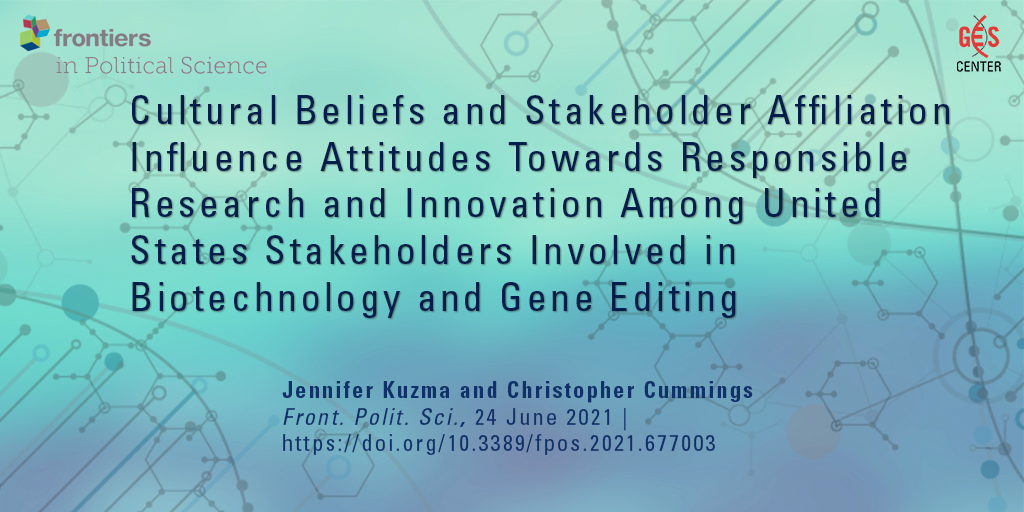

Cite as:
Kuzma, Jennifer and Cummings, Christopher L. Cultural Beliefs and Stakeholder Affiliation Influence Attitudes Towards Responsible Research and Innovation Among United States Stakeholders Involved in Biotechnology and Gene Editing. Frontiers in Political Science 2021; Vol. 3, DOI: 10.3389/fpos.2021.677003. PDF
Abstract
Biotech developers are concerned about the future of gene editing having experienced the contentious history of first-generation GM foods. They have also expressed desires to do better with public engagement in gene-editing innovation. The framework of Responsible Research and Innovation (RRI) may provide a way forward to act on their desires for greater public legitimacy. However, in the United States, -there has also been reluctance to incorporate RRI into biotechnology innovation systems like gene editing in food and agriculture. In this article, we investigate individual- and group-level factors, including demographic, sociographic, and cultural factors, that influence attitudes towards RRI among biotechnology United States stakeholders. Using the Advocacy Coalition Framework’s (ACF) hierarchy of beliefs as a theoretical guide, biotechnology stakeholders (n = 110) were surveyed about their cultural (deep-core) beliefs and then about their attitudes towards principles (policy-core beliefs) and practices (secondary beliefs) of RRI applied to biotechnology innovation. Through statistical analysis of the results, we found significant relationships between stronger egalitarian cultural-beliefs and positive attitudes towards both the principles and practices of RRI. We also found that participants with higher levels of experience held more positive attitudes towards principles of RRI. In contrast, we found a significant inverse relationship between professional affiliation with industry or trade organizations and attitudes towards RRI practices. With these results, we present a model of factors that influence RRI attitudes for future testing. In closing, we interpret the results in the context of ACF to examine the potential for building cross-sector coalitions for practicing RRI within United States gene-editing innovation systems.
Keywords: Responsible Innovation, RRI, CCE-STEM, Public Engagement, Advocacy Coalition Framework, Gene Editing, CRISPR
Related Research: NSF Comparing Cultures of Responsible Innovation across Bioengineering Communities